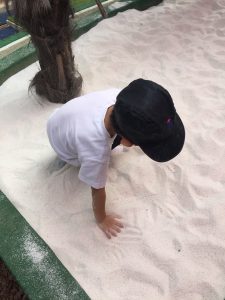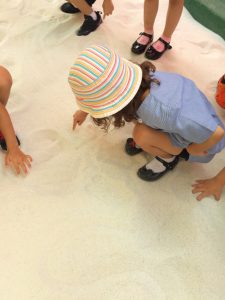Written by Veronica Martin (ECE Coordinator)
In ECE, children learn through a play based emergent model. Children are encouraged every day to express themselves and to think about problems. The curriculum, although play based, is thoughtful and directed at the overall learning outcomes we want our youngest students to master.
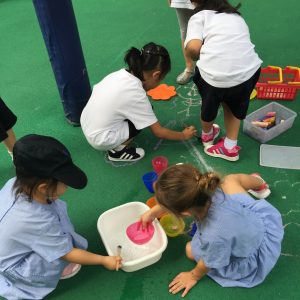
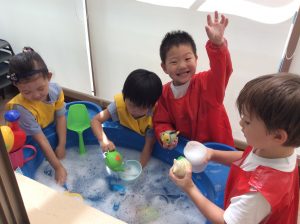
Last week in a K4 class, the teacher read ‘Jack and the Bean Stalk’ to the children. The story involves Jack who climbs a bean stalk and takes items from the rich giant to help his family who were very poor to buy food and other necessities. The teacher asked the children whether they thought Jack was right or wrong in taking the items? Some children were very strong in their belief that Jack was correct as it meant that his family would no longer be poor. Other children were equally as strong in their view that Jack was wrong in taking items that do not belong to him. All children were able to listen to each other and hear why others had a different theory on what is right and what is wrong. The idea is not to give the children an answer but to encourage them to think for themselves and form a theory that may change over time.


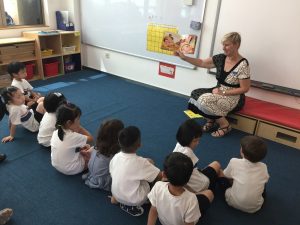 Whilst teachers are responsible for curriculum planning and implementation, children are considered to play an active role in this process. This role is realised by the teachers’ continuous attention to the children’s interest, their wonders and curiosities. Every room is set up to encourage choice with open-ended activities, that encourage thought and choice in many things that children do. The teachers lead and support all individual learning and build upon simple activities that lead to more complex work.
Whilst teachers are responsible for curriculum planning and implementation, children are considered to play an active role in this process. This role is realised by the teachers’ continuous attention to the children’s interest, their wonders and curiosities. Every room is set up to encourage choice with open-ended activities, that encourage thought and choice in many things that children do. The teachers lead and support all individual learning and build upon simple activities that lead to more complex work.
Children from every year level should not be passive receivers of information; rather they should be encouraged to think and explore options in their learning environment that not only are inviting but also encourage a child to express themselves. This could be through multiple ways, such as through art, sensory play or creating a theory on a topic. Young children ‘feel’ learning, when we involve as many senses as possible. In play, young children will retain more of the information that we want to impart on them. Children may finger paint their name or shapes, or line up colored cars to count. This is also why the ECE curriculum is full of messy, exploratory, wet and colourful play.
The ECE Curriculum is set up so that children build upon their expressive learning capabilities. When children become confident in their ability we always see growth in learning areas such as literacy, mathematics, languages and all other learning outcomes.
